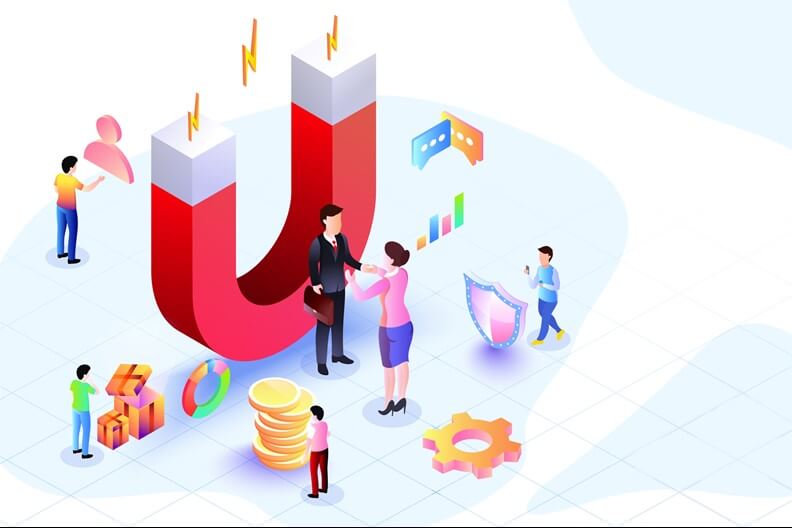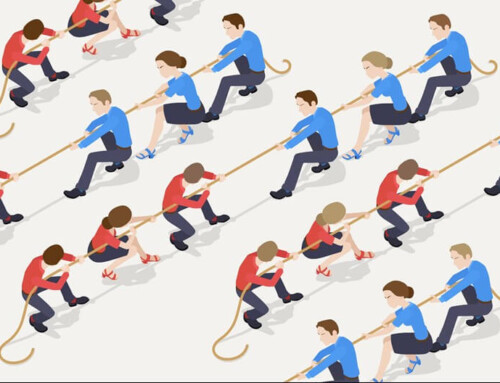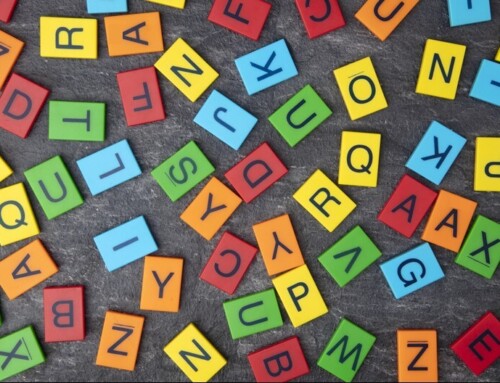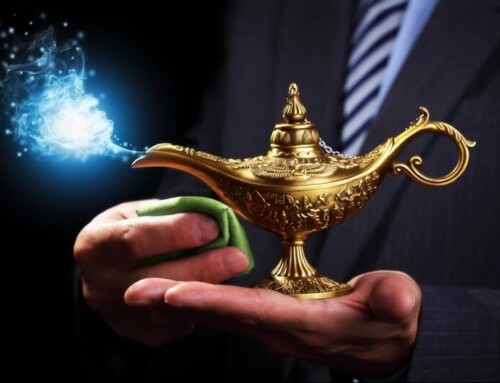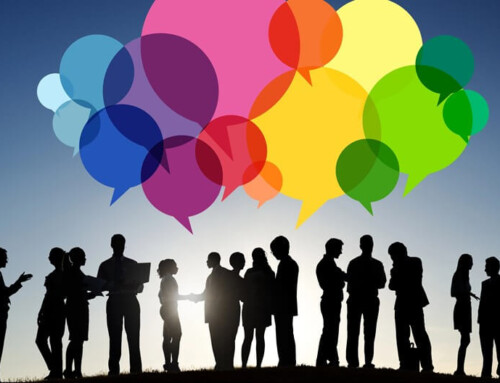At many organizations, the sales team tends to focus on landing new customers – and neglects to work on retaining the customers they already have. Doing so is a potentially costly mistake, as acquiring a new customer can cost five times more than retaining an existing one. (1) On the positive side, improving customer retention by just 5% can increase profits from 25% to 95%. (2)
Winning and strengthening customer loyalty is key when it comes to retaining them. This is especially important when it comes to companies that sell products or services to other companies – business-to-business (B2B) sales. When you court B2B customers, you need to consider that these buyers are often held to a specific budget, and they are under pressure to demonstrate the value of the product or service they select. This reality raises the stakes for B2B buyers.
Therefore, you must cater to these customers in a different way once you get them onboard. A loyalty program is one of the most effective strategies for pulling this off.
WHAT IS A CUSTOMER LOYALTY PROGRAM?
Designed to encourage existing customers to continue doing business with the provider, a loyalty program rewards these customers with attractive incentives each time they renew their purchase.
Loyalty program incentives come in many different forms, with examples including:
- Rewards are given when the customer achieves designated spending levels or milestones.
- Access to products or services reserved for customers at certain tiers.
- Discounts on future purchases the customer makes from the seller.
You should start promoting your loyalty program as soon as customers sign on. Setting up a series of automated emails sent to them beginning with their initial contract with you is an excellent strategy for raising awareness. The emails should be spaced out at least two to three months in the beginning and build to a higher frequency as the end of each customer’s contract gets closer.
B2B AND B2C LOYALTY DIFFER CONSIDERABLY
Multiple parties are involved in B2B purchasing decisions, as opposed to one or two in B2C sales. In B2B, decision-makers and stakeholders typically work in different departments and likely have slightly different business goals. Sometimes these goals can even be conflicting, such as when finance desires savings and value but sales prioritizes morale, productivity, and growth. Due to these factors, giving B2B customers a positive experience hinges partly on developing an in-depth understanding of their business, as well as its overarching objectives.
The driving factor behind decision-making also differs between B2B and B2C buyers. While the former is driven by the goals they need the product or service to achieve for the company, the latter is driven by personal preferences.
In addition, B2B sales cycles take longer than their B2C counterparts. B2B involves more time spent on conducting research, reviewing proposals, and analyzing the value of the product or service to their organization.
B2B market challenges also differ from their B2C counterparts in other areas. A few include:
- Fewer deals, but they often have a higher per-ticket/sale value.
- Long-term relationships are one of the key factors in decision-making.
A good B2B loyalty program will consider the complexity of the decision-making process, the pressure that B2B buyers are under, the importance (and value) of the long-term relationship, the cost of the status quo, and the slower speed at which they decide whether to stay with the current provider of the product or service.
PERSONALIZATION IS A CORNERSTONE OF AN EFFECTIVE LOYALTY PROGRAM
While personal preferences do not figure into the B2B decision-making process, personalization is still integral to an effective loyalty program. In this case, your program should personalize details of the program to each customer as much as is realistically possible.
Factors to account for include:
- The pain points the customer needs your offerings to solve
- All the stakeholders involved in making the decision, including specific roles and responsibilities
- The challenges of the customer’s industry
When you demonstrate that you have done due diligence and that you care about personalizing the customer experience, your loyalty program will become a powerful driver of customer retention.
THE B2B CUSTOMER EXPERIENCE MATTERS – A LOT
You might wonder why you should invest time, money, and resources in a customer loyalty program. Are the potential benefits truly worth the investment? Consider the following.
The importance of providing a positive experience for B2B customers does not end with retaining them. Satisfied and delighted customers are more likely to make additional purchases from your company, creating an excellent opportunity to cross-sell or upsell to them.
Even better, happy customers have the tendency to speak well of your organization to their counterparts at other businesses, or across the organization that could also benefit from your products or services. Peer recommendations go a long way in not only landing new sales but also becoming a power player in your industry. If you get enough customers talking about how beneficial your offerings are, and how easy it is to work with your team, the word will get around. It is one of the best forms of promotion – and it will not cost your company a dime.
LOYAL CUSTOMERS ARE ONE OF YOUR GREATEST ASSETS
Considering the many ways in which customer loyalty can benefit your organization, a loyalty program certainly seems like a solid investment. Giving existing customers a positive experience through this program will vastly improve your chances of not only retaining current customers but gaining lucrative referrals from them, as well.
Are you seeking to strengthen customer experiences and brand loyalty? Contact Gavel International to learn how group incentive travel can help set your sales team up for success.
_______________________
SOURCE(S):
1 https://www.outboundengine.com/blog/customer-retention-marketing-vs-customer-acquisition-marketing/
https://smallbiztrends.com/2014/09/increase-in-customer-retention-increases-profits.html
This article was last updated on October 26, 2023
- Branding vs. SEO: Striking the Perfect Balance - February 10, 2025
- Why Executive Retreats Are Worth the Investment - January 6, 2025
- Attract and Retain Top Talent with These 10 Desirable Company Culture Traits - December 23, 2024

